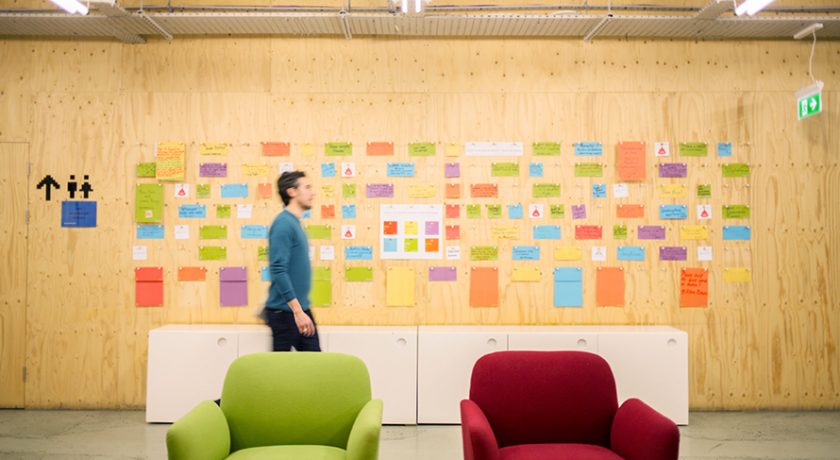“The agencies in this room today will be lucky to be around in five years, much less 10, unless they radically transform the way they come to market,” said The&Partnership North American CEO Andrew Bailey during an event aptly titled Is the Agency of the Future Still an Agency?
A second event, called Advertising Needs a Rebrand, addressed an even more basic challenge: Why is advertising a “dirty” word?
Perception, of course.
“Lets stop calling ourselves ad agencies, because advertising is such a small part of what we do,” said Deutsch North American chief digital officer Winston Binch, who argued that a broader, more generic term would be more accurate. “Mad Men wasn’t about marketers, and it’s not as sexy, but frankly that’s what we all do,” he continued. “I love advertising, but maybe we should think about the semantics more. Maybe I’ll just tell my mom’s friends that I’m a marketer.”
R/GA U.S. chief creative officer Chloe Gottlieb added, “The word ‘advertising’ feels limited, but the word ‘agency’ can be a lot of things.”
Yet even that word is problematic. Jack Bamberger, svp of global partnerships at Oath, said the media’s insistence on using “agency” to describe marketing organizations of all shapes and sizes causes confusion.
Then there’s the issue of what separates agencies from the consultancies that are increasingly eating their lunch.
Accenture Interactive refers to itself as an “experience agency” to better encompass the breadth of its services, said North American managing director and marketing lead Jeannine Falcone. “We don’t go out and pretend that we’re a brand or media agency,” she added.
And yet consultancies are competing with traditional agencies. As Falcone pointed out, consultancies are able to “turn around and crank out anything at massive global scale,” adding, “that might be hard for other agencies to figure out.” She did acknowledge that the company is not yet known for its creative capacity, saying, “We’ve had to layer that in over time.”
And as we’ve heard for years, “traditional” agencies look to follow or risk irrelevance. Tim Castree, global CEO of WPP’s new media network Wavemaker, wants his organization to increase the amount of problems that it can solve. “We’re building on top of our core business of media trading and buying and moving into tangential areas.”
So creatives want to offer more consulting services while consultancies want to grow more creative. They all want to work with more emerging companies while selling themselves as “full-service” groups designed to help solve all of their clients’ most pressing problems—and none are terribly happy with the words “advertising” or “agency.”
It can feel a bit confusing to clients and reporters alike, but this cross-pollination will undoubtedly continue. During their panel, Gottlieb noted that R/GA has long maintained an Accelerator program, and Binch discussed the opening of Deutsch’s new 40,000-square foot L.A. studio fit to accommodate the agency’s own production team as well as any interested third-party content makers.
Whatever these organizations would prefer to call themselves, they’re all still ad agencies to us … for now, at least.
via Patrick Coffee

